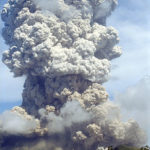Contributed by a reader living in Amman
Fall 2008
Jordan is a complex and fascinating – but ultimately depressing – place to explore how same-sex relationships are playing out in the Arab and Muslim world.
To the traveler, Jordan, and particularly the capital Amman, can appear as a modern, open country where men and women (especially young men and women) mix more freely than in some neighboring countries, Western fashion predominates, familiar and even upscale brands like Starbucks and Bang & Olufsen are spreading, most women drive, and fewer women wear headscarves.
Many families in Jordan have become quite rich, particularly as an aftermath of the war in Iraq and the subsequent increase in the demand for Jordanian products and services and a real estate boom caused in part by an influx of Iraqi refugees. This wealth is constantly on display in fancy wedding parties, expensive cars, haute coiffure and couture, exclusive clubs, and a growing list of trendy restaurants, nightspots, and vacation destinations.
In spite of the increased wealth and openness to the outside, made even more accessible by ease of travel, satellite TV, and the internet, social attitudes are changing very slowly in Jordan. Jordan remains a deeply conservative and conformist country, in which everyone is expected to get married and have children, and few are allowed to leave the family home until this “marriage imperative” is fulfilled. This imperative, more than anything else, creates a negative environment for lesbian, gay, bisexual, and transgendered (LGBT) persons. (It also creates a negative environment for non-LGBT Jordanians who, for whatever reason, wish to remain single, whether they move out of the family home or not.)
Reinforcing the negative environment for LGBT Jordanians created by the marriage imperative is the so-called “culture of shame.” It is said that in Western societies, individual behavior is constrained by feelings of guilt (negative messages originating from within), whereas in Eastern societies behavior is constrained by feelings of shame (negative messages originating from outside).
The “culture of shame” is a powerful constraint on individual behavior and attitudes in Jordan, and affects not only the sphere of intimacy and privacy (such as dating and sexuality), but also selection of friends, educational and career choices, work-life balance, and the dynamics of the workplace itself. (For example, one is not allowed to have friends that are perceived by the family to belong to a lower social class.) The most immediate source of shame heaped upon the hapless Jordanian who displays nonconformist behavior or attitudes is usually the nuclear family, but extended family members, friends, and colleagues can also contribute to reinforcing conformity.
This culture of shame, which is especially pronounced where LGBT matters are concerned, keeps most LGBT Jordanians in a state of morbid fear that their families will discover their sexuality. Even if the immediate family members of an LGBT Jordanian have liberal attitudes, the pressures from extended family members or the community at large can be overwhelming – the constant “cluck, cluck, cluck-ing” of gossipy relatives, neighbors, friends, and colleagues can turn even the most liberal-minded parents into enforcers of the established social order. Indeed, it is often said that in societies such as Jordan, the most effective method of controlling sexual behavior is by talking about it.
Some examples may illustrate. Two gay Jordanian friends of the author, unknown to each other, one from a very poor family and the other from a very rich family, are both in their mid-30s and have never been married. Both face immense pressures from their families to marry, and family weddings have turned into intolerable experiences for both. Both have mothers with serious illnesses who have blamed their conditions on their sons’ “unresolved” marital status. Both face annoying speculation by others about their virility and manhood, and both are considering marrying a woman just to shut everyone else up.
Another gay Jordanian friend of the author would not reveal his real name or place of employment to the author until the author credibly threatened to end the friendship. Foreigners living and working in Jordan often remark that the first question they hear upon inviting a gay Jordanian to some event (whether or not it has a gay theme and whether or not any known gays will be present) is “Will there be other Jordanians there?” and the invitation is almost always refused if the answer is yes.
Internet and Media
Notwithstanding these obstacles, LGBT Jordanians have made enormous progress over the last few years. The situation facing Jordan’s LGBT population today is comparable to the situation facing LGBT persons in the United States 40 years ago. But Jordan’s LGBT population will undoubtedly progress much faster of the next 40 years than Americans did over the last 40 years. The internet has played a huge role in this acceleration process, bringing Jordan’s atomized LGBT population together into something of an embryonic community.
For example, in July 2007, about 1200 Jordanian men had profiles on Manjam (an international gay dating site), with 40 or 50 online on a typical evening. By November 2008, that number had increased to more than 2800, with 120 typically online at any given time.
Through the internet, Jordanians have anonymous access to thousands of sites containing unbiased LGBT information and entertainment with positive messages, and the ability to form online relationships with LGBT friends from all over the world.
Over time, this increased access to information will also change attitudes of non-LGBT Jordanians toward LGBT issues, leading, it is hoped, to a less conformist, more enabling environment.
The importance of access to unbiased information should not be underestimated. Jordan has a relatively sophisticated media by the standards of the Arab world, yet journalists are seriously ignorant on LGBT matters. When they cover LGBT concerns at all, which is rare, the tone is universally negative and journalists imbue their stories with their own prejudices. A recent example concerned the brave efforts of a few young Jordanian men to increase HIV prevention awareness among gays.
Although this valuable initiative had the support of the Ministry of Health, journalists seized on it and turned it into another opportunity to blast the “spread of homosexual culture” in Jordan and warn parents about this “scourge” that was threatening to “influence” their children.
In another example, almost laughably absurd, a paper affiliated with the Muslim Brotherhood asserted that “World Homosexual Day” (a holiday strangely unknown to the LGBT community in San Francisco, New York, Berlin, Taipei, Sydney and hundreds of other gay hot spots around the world) would be celebrated in Jordan on November 21, 2007.
Even more recently, the media seized on the arrests of a few gay sex workers in a cruising area of Amman and, conflating prostitution with same-sex desire, railed against the “sin, disease, and corruption” of homosexuality, claiming it is caused in childhood by the absence of an effective father figure and triggered by sexual abuse.
Interestingly, one article boldly stated that there were 600 homosexuals in Jordan (the actual figure is probably more like 600,000). (This story, written by Muwaffaq Kamal in Al Ghad newspaper near the end of October, is only one of many anti-gay stories by that newspaper.) Those arrested were put in administrative detention by the head of the Amman Governorate (political entity similar to a U.S. state). It was also reported in JO Magazine (see “Crackdown?” by Serene Al-Ahmad in the December 2008 issue) that a policeman said he “had received orders to arrest ‘overly effeminate men’.”
Positive Developments
In a positive development, two dance pubs with a strong LGBT following (RGB and Fab) have opened up in Amman since August 2007. As of this writing (December 2008) the clubs had been opening and closing unpredictably, but current information is available from local LGBT persons.
The latest closures were as a result of threatening messages received by the owners, who insist that their clubs are operating entirely legally, with all the necessary permits. At both clubs, many non-LGBT persons — even some married couples – enjoy the relatively open and democratic atmosphere. Dozens of men (and a few women) are packed onto the dance floors, gyrating to a mix of Arabic and Western dance music, although shows of affection and “dirty dancing” are not allowed. Face control is practiced (according to the owners) primarily for security reasons but has led some local LGBT persons to complain of discrimination. Foreigners, however, are always admitted.
The crowd at these pubs is more mixed than one would find in Western Europe and North America and is about 90 percent male and 95 percent local and young, with an interesting combination of students, young professionals, “club-bunny” types with unusual hairstyles and makeup, and a few “muscle boys.”
Local lesbians, some local straight women, a smattering of straight men and a few foreigners round out the mix. Alcohol flows freely and is consumed by both Muslims and non-Muslims.
Well over 50 percent of the crowd is smoking at any given time, creating an intolerable atmosphere for nonsmokers especially in the chilly months when the outdoor terrace is unusable. Jordanians usually go to pubs and clubs in groups, and these pubs are no exception. This tendency puts a damper on cruising, as people do not stand alone and there needs to be a link between groups in order for someone from one group to be introduced to someone he/she likes in another group.
Although only a small fraction of Jordan’s large LGBT population has ever attended these pubs, they do represent a breakthrough of sorts. For the first time, significant numbers of LGBT Jordanians have allowed themselves to be seen in public together, accepting the risk that someone untrustworthy might recognize them and spread rumors that might eventually reach their families.
Private gay parties are also springing up around the city of Amman and in the spectacular desert scenery of Wadi Rum and Wadi Musa. In the summer months, local gay men enjoy going in groups to the outdoor swimming pools of the many 5-star hotels in Amman, joining families and young non-LGBT professionals.
Clearly, generational change is having its effect in Jordan, and many young people, LGBT and non, are casting aside the antiquated beliefs of their parents’ generation. Progress will not be steady, and there probably will be backlashes by more conservative elements of society as LGBT persons become more assertive of their rights to individual dignity and self-determination.
The backlashes are a normal part of the advancement of any marginalized group and have been observed in many countries with regard to LGBT issues. The important thing is that the general trajectory of movement is forward.
The writer is an American businessman based in the Middle East.
















